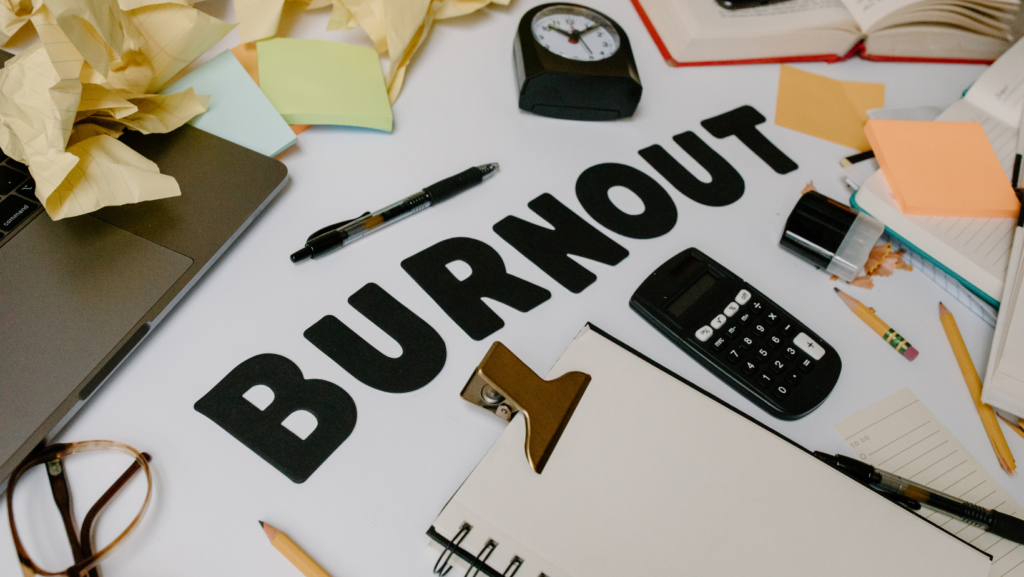
…and, no, that’s not simply a way of saying you’ve had a big day at work!
Occupational burnout syndrome has been included by the WHO in the ICD-11. It refers, broadly, to physical and mental exhaustion as a result of ongoing work stress. Needless to say, the COVID pandemic has generally increased both professional and personal stress, more especially for health care workers.
Why should we be concerned?
Burnout has adverse psychological, physical, social and economic consequences for professionals, healthcare systems and patients. Consider the impacts of reduced productivity, increased absenteeism, higher workforce turnover, increased errors, reduced quality of care….to name but a few.
Is it burnout or stress?
Burnout typically includes a constellation of physical and psychological aspects.
Three psychological aspects typically co-occur and reflect a state of burnout, namely:
- Emotional exhaustion – feeling emotionally drained with a sense of very little to give
- Depersonalisation/cynicism
- Sense of lack of accomplishment and inefficiency
These aspects can manifest as increased anxiety, irritability, mood swings, insomnia, depression, self-doubt and reduced self-esteem, impostor syndrome, compassion fatigue and lack of a sense of affection, a feeling of indifference, reduced motivation to do what once excited you, increased sense of dread prior to going back to work (the Sunday Blues / Scaries), feeling detached, alone and lonely.
Physical symptoms that are frequently present (often due to elevated levels of stress hormones such as cortisol) include: headaches, digestive complications, muscle tension, high blood pressure. Immunity is often compromised and even those whose health is usually robust may present with recurrent colds and other mild illness.
Who gets burnt-out?
Anyone can suffer from burnout but a group of people who are at high-risk are those who are driven to perform at a high level, tend to over-deliver, ask for more and are consequently given more, the so-called engaged-exhausted. These workers often go-under-the-radar and may also find it difficult to recognize burnout in themselves.
Seem familiar? I would hazard a guess that a significant number of health professionals fit squarely into that category! Needless to say, those juggling many different professional and personal roles may also be at elevated risk.
What causes it?
Workplace, professional and personal factors can contribute to burnout. Consider the following: job (dis-)satisfaction, (long) daily working hours, high workload, shift work, rigid schedules that don’t allow for flexibility, high administrative task-burden, anxiety about working conditions and workplace safety, lack of control, limited resources.
How can I recover?
Recovery is an individual process and it’s not possible to predetermine the amount of time required. Typically, it seems to take longer than people may anticipate.
You may be surprised at how your reserves of energy and resilience are easily depleted in the early stages of recovery. Recovery commonly requires both physical and psychological rest and recuperation, as well as a change in approach to work, health and self-care habits.
Here are some approaches and interventions that may assist you to manage your stress and gradually regain your health, energy and joie de vivre!
- Shift your focus towards work-life balance and your general well-being. Start with small daily actions to balance time spent at work and time spent on non-work activities.
- Create a habit of journaling
- Build a support network = discuss your struggles with someone you trust. Don’t be afraid to lean on others for support,
- Exercise regularly to release tension and produces feel-good endorphins.
- Be honest about your situation with your boss or manager. Watch your overtime!
- Learn stress management techniques – there are many – to slow down, focus on the bigger picture and build a sense of calm and peace into your life. Try mindful breathing, visualization, meditation, intuitive eating, or cardio.
- Ensure you schedule enough vacation days to spend quality time with your friends and family
- Regularly do things (not work!) that you enjoy and that you find fulfilling.
- Create a healthy sleep schedule – work on improving your sleep hygiene and increase your total sleep time to improve your physical strength, mental focus and emotional stamina.
- Follow a healthy diet to boost your immunity and energy and make you less vulnerable to stress and fatigue.
- Set boundaries – learn to say no!
- Consider engaging in psychotherapy to better understand yourself, your drivers and what triggers stress in yourself and how to manage it.
If you have any questions or wish to understand and explore your own recovery from Burnout, you are welcome to contact our reception at Mindcheck HP to schedule an appointment with one of our psychologists.




